Jerusalem's Peace Players
Bridging a divide in the Middle East through friendship and sport
Story Nic Corbett, USAID and Sahar Kalifa, USAID | Photos by Bobby Neptune for USAID
June 2016
When Liraz and Jinan get together, they playfully tease each other and erupt in giggles while sharing news about each other’s lives. When apart, they constantly text each other.
In short, Liraz, a 16-year-old Israeli, and Jinan, a 14-year-old Palestinian, are typical teenage girls.


Their friendship, however, is not so typical.
Born on opposite sides of a conflict that is one of modern history’s longest and most protracted, the pair met a year ago when they joined the same basketball team in Jerusalem.
“It’s not a normal thing that Palestinians and Israelis play basketball together—or even talk together,” Liraz says.



PeacePlayers is a nonprofit organization that brings people in conflict zones together through sports, teaching them to compete together—not against each other. Now, the teen girls are building peace through the common language of basketball, a sport they both love, and serving as role models to their peers and their families.
Liraz lives in Moshav Givat-Yearim outside of Jerusalem with her parents and three older sisters. She says her family is not orthodox, but keeps some of the Jewish tradition.
“At the beginning my parents, like me, felt a little strange, and maybe even a little uncomfortable,” Liraz says. “But they met the girls. They saw how I’m making friends with them and how I’m having fun with them.”

Jinan lives in East Jerusalem.
She lives in Beit Safafa with her parents, three brothers and a sister.
“When I first started playing in the mixed team of both Arabs and Jews, I had some mixed feelings,” Jinan says. “I was scared but I also wanted to meet new people.”



View of the “other side”
Before becoming involved in PeacePlayers, the girls said their views on the “other side” were influenced by what they heard on TV or the street.
“You don’t know what to believe,” Liraz says, “because you don’t really know them and this is the only thing that you see. But after being on the same team, my perspective changed.”
The girls’ parents also changed their perspectives.
Jinan’s father Hassan says he didn’t mind her going to practice in the midst of exams; he noticed it had a positive effect on her, even helping her get better grades.
Liraz’s father Yaron said that through PeacePlayers, his daughter “got to know the picture better, that there are all kinds of people, and that you don’t have to catalog them according to religion, but according to their being human.”
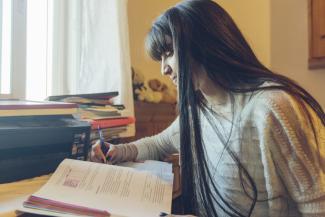
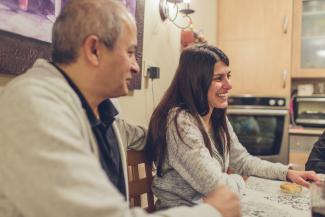

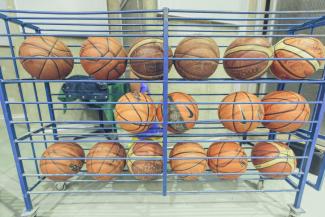
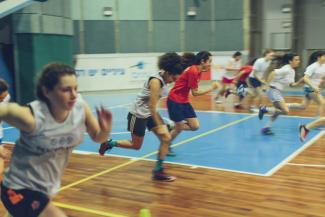
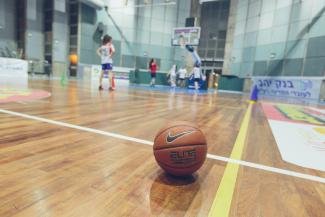
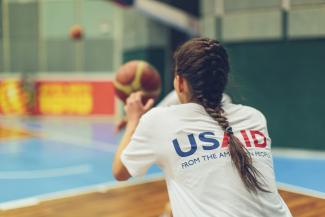
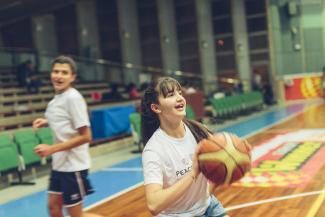
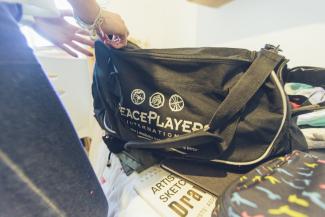

At the end of practice, Jinan and Liraz join their teammates in putting their hands inside a circle and shouting “We are PeacePlayers” in unison. “I see my whole team as one big family,” Liraz says. Jinan agrees: “I truly feel that the people that have not experienced what I am experiencing are missing out a lot."
“At the end of the day,” Jinan says, “we’re both human, and I don’t feel like there is a difference between us. We make a perfect team.”



About This Story
PeacePlayers International uses basketball as a tool to bridge divides, develop young leaders and change perceptions in Israel and the West Bank, as well as other regions around the world.
USAID has supported PeacePlayers International’s program to bring together Israelis and Palestinians since 2010. About 400 children and youth between the ages 6 and 24 participate in the program today.
The younger participants start with “twinning,” a program in their own community to prepare them for joining a mixed team with children of a different religion and ethnicity.
Preliminary results from a study by New York University found that participating in the organization increases the willingness and ability of Israeli and Palestinian youth to act as peacebuilders by standing up to defend members of the other group when harassed or facing aggressive actions.
PeacePlayers is one of two dozen programs that USAID supports to bring together Israelis and Palestinians to promote peace.


